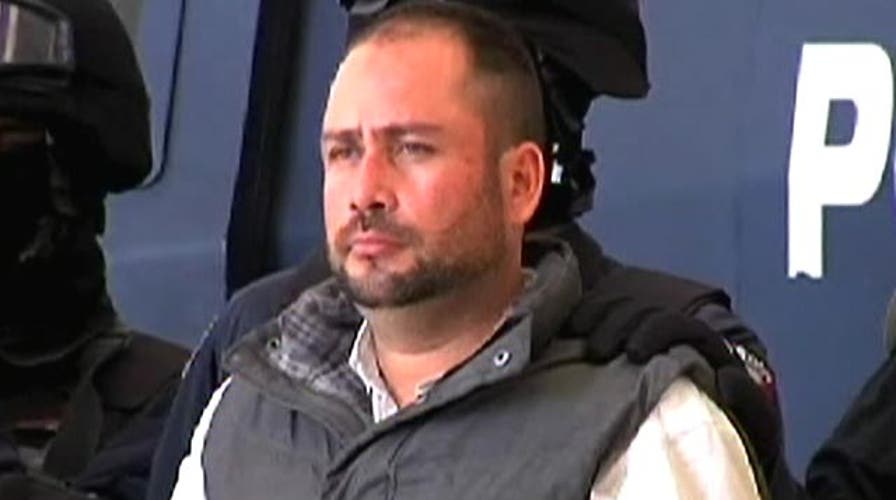EL PASO, Texas – Lawyers for a Mexican cartel enforcer suspected of killing thousands of people in Juarez and now facing trial here for the murder of Americans hope to free him with claims police south of the border tortured him before handing him over to U.S. authorities.
A federal judge has already ruled that Juarez gang leader Arturo Gallegos Castrellon’s confession that he killed a U.S. Consulate employee, her husband, who was an El Paso County law enforcement officer in 2010, and another man whose wife worked for the U.S. Consulate cannot be suppressed. But that won’t stop his attorneys from challenging it before a jury, with claims the admission came only after Mexican police shocked his testicles and raped his wife.
"Americans are aware that suspects are tortured in Mexico, but I don't think they really know to what extent," said defense attorney Randolph Ortega.
Castrellon, 32, who authorities say heads the Barrio Azteca gang, enforcers for drug cartels, has been charged in the 2010 murders of four people connected to the U.S. Consulate in Juarez. U.S. citizen and consulate employee Lesley Enriquez and her husband were gunned down along with El Paso County Sheriff's Detention officer Arthur Haycock Redelfs after they left a children’s party. The motive is unclear, though authorities believe they may have been mistaken for rival gang members.
[pullquote]
Castrellon was arrested and interrogated by Mexican police Nov. 26, 2010, then handed over to FBI agents in Mexico City. Ortega says Castrellon only confessed to the murders after the Mexican cops softened him up with torture. There is no indication the FBI took part in the alleged torture, but Ortega claims the confession his client made to FBI Special Agent Lorenzo Perez was "the product of torture at the hands of Mexican officials and improper psychological pressure by the FBI agents."
While the U.S. District Court Judge Kathleen Cardone denied the suppression of Gallegos Castrellon’s confession Nov. 13, Ortega hopes an American jury will refuse to convict a suspect if it believes a confession was coerced via torture. Assistant U.S. Attorney Joseph Cooley said even if a jury discounts the confession, there’s plenty of evidence to convict Castrellon.
“We are not simply relying on a confession in this case,” Cooley said.
Fred Burton, a specialist in Mexican organized crime for Stratfor, a Texas-based private intelligence firm, and a former counterterrorism agent with the U.S. State Department, said even if Gallegos Castrellon’s allegations are true, the confession would still be admissible in a U.S. court.
“It really doesn’t matter what happened while he was in foreign custody, as long as no torture was conducted by U.S. agents,” Burton said. “Ultimately, how the confession was obtained is not an issue in a foreign country.”
The arrest of Castrellon and others allegedly involved in the shootings has coincided with a sharp decline in Juarez’s murder rate. Some 10,836 homicides occurred there between 2008-2012, as the Juarez and Sinaloa drug cartels fought over control of the lucrative drug smuggling route into the U.S. The El Paso Times reported that Castrellon, also known as "El Farmero" and “El Benny,” admitted to ordering, carrying out or otherwise being involved with 80 percent of the murders in Juarez, which would account for 8,669 over the same time period.
Since the arrest of Castrellon, the murder rate in the violent city plummeted from 3,622 in 2010 to 2,086 in 2011, then 751 in 2012.
Gallegos Castrellon's trial is scheduled to begin Feb. 3 in El Paso Federal Court.


